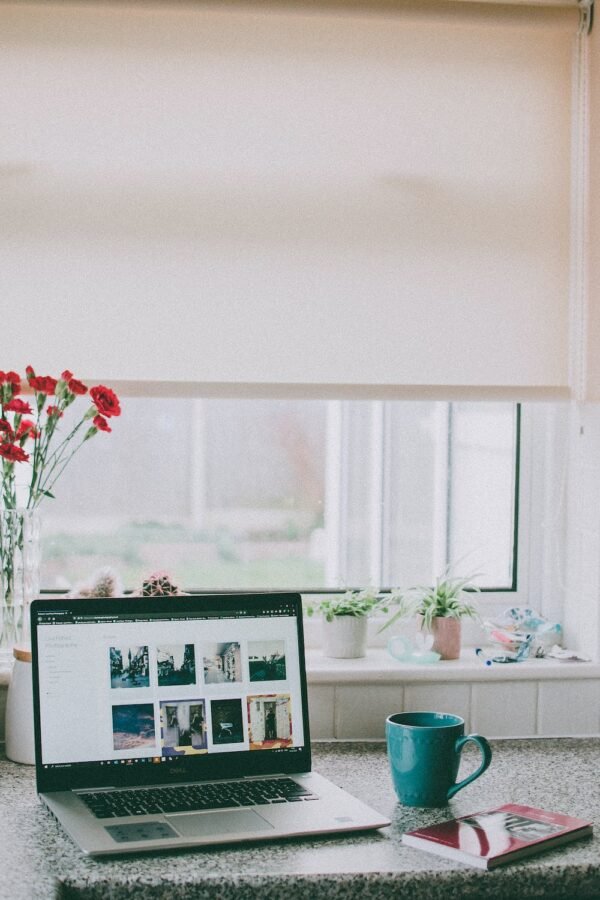
How to Set Yourself Up So You Can Work from Anywhere

Imagine being able to work from anywhere in the world. That was what I wanted to do when I started Panpathic Communications 12 years ago. I had developed the travel bug during my time as a journalist and, in particular when working full time with PASSION for the PLANET, and I wanted to be able to continue travelling and experiencing the world.
If you’d like to work from anywhere here is what you need to know to get yourself set up:
1) Be realistic
Does your business or job really allow for remote working? Do you need specialist equipment that you can’t carry with you? Do you need a very specific working space that may be tricky to replicate? Can you deliver a good service if you are not in the office? If yes, does this still apply if you are in another country and can’t get into the office if needed, and can’t attend client or colleague meetings in person? Are you self-motivated and able to stick to deadlines even when the sun is shining and the beach/hike/snow etc. is beckoning?
Be realistic. Travelling is supposed to be a pleasant experience, so make sure you and your work are a good fit. If not, don’t despair, it doesn’t mean you can’t do it at all, but you may need to think carefully about how much time you can and can’t spend being a ‘nomad’.
2) Technology
Technology is key. Without the right tech it’s almost impossible to work and travel at the same time. Exactly what you need will vary from person to person. For me I need a good, lightweight and slim laptop. I am prepared to pay extra for a high spec laptop that is even just a little slimmer and lighter to carry. It’s a decision I have never regretted. One of the downsides of working while you travel is the ‘stuff’ you need to carry, so anything that makes that easier is well worth it.
I also have a mifi device, so I don’t have to hotspot off my phone if there is no wifi. This means I can make calls while connected and it preserves the battery life of the phone.
And talking of phones, I find a reliable smartphone is a must. I ensure mine is sync’d to my laptop so I can jump between the two if needed and I know everything will be up to date on both devices.
The final piece of must have tech, is an extension block with at least four plug sockets and a long lead. Hotels never have enough plug points, and they are usually in awkward places. And if you want to sit on the balcony then you’ll need a long cable. Also taking an extension block means you only need to carry one universal plug adapter with you.
3) Accessing your data
If you work on your own, then storing all your work locally on your laptop might be sufficient – although not very safe. What happens if your laptop is lost or stolen?
One way to solve this is to use a cloud-based system for working. This is essential if you have colleagues you need to collaborate with or you need to share your work for others to access. Google docs, Dropbox and SharePoint are the three most commonly used Cloud solutions. We started with Dropbox (which is very simple to use and set up) but found data went missing and conflicted copies between team members was a constant issue, so we now use SharePoint. Ultimately, the choice is yours and will come down to what you are comfortable with and the cost.
I download the files I want to work on, so they are also stored locally on my laptop. This means that even if I don’t have an Internet connection, I can still work on them. Once I am connected again, they upload and the changes are available to everyone. When I no longer need a file locally, I can click to ‘free up the space’ and it is removed from the laptop and stored safely in the cloud.
Cloud-based computing has been a game-changer for the ‘digital nomad’ – it has made ‘working from anywhere’ a real option. Not only can you share your work easily and quickly, it’s an extra safety net should your laptop be lost/delayed/stolen/die; you simply need to find another device, connect to the internet, and off you go.
4) Hand luggage
When travelling I always carry all my tech in my hand luggage. I just don’t trust leaving it in the hold or out of my sight. But by the time I have a laptop and cables, a mifi, my phone, my recording kit (for radio interviews I conduct for PASSION for the PLANET) and other essentials like my purse, passport, a book, a bottle of water etc., well the bag can be quite big and heavy. I use a lightweight but very strong rucksack that is hand luggage size. I can carry it on my back, which is better weight distribution and frees up my hands for tickets, passports, paying, and even drinking a much-needed coffee as I move from one location to the next.
5) The destination
Think carefully about the destinations you choose. Not everywhere is suited to work on the move. Consider the time difference – do you need to be awake and working at the same time as your colleagues? Also, think about the available infrastructure – will you have access to wifi, or at least mobile data, and what about keeping everything charged up? Europe is pretty easy, although post-Brexit, many networks have stopped offering free roaming within the EU, which can add to your costs. North America generally has good infrastructure too as long as you can cope with the time difference. But there are plenty of places where being a digital nomad is a little trickier. For example, on a trip to Antarctica a few years ago there was no opportunity to work – no wifi, no phone signal. Yes, I could charge my laptop on the ship – but, who wants to work when you’re surrounded by one of the most beautiful landscapes on Earth?
6) Packing templates
Packing and moving about can be quite stressful. To help alleviate this I have a number of packing template lists. There is a list for all the tech I might need. Another list for clothes etc. for hot places and another for cooler places. I also have a list of things I need to be sure I have done before I leave and another for the things I might want in my hand luggage depending on whether it’s a short- or long-haul flight, a coach, or a drive. It may sound like a lot of lists, but if you write them once and create a template it will make a life a lot easier.
I also update the lists when I get back home, crossing off things I just never end up using, and adding notes about items I wish I had or something that would have been a better alternative. Quite soon you’ll find you have a handy resource that will delivers again and again.
Whether you want to head off for a few days at a time or take a longer tour being able to work and travel at the same time can be hugely rewarding. Any downsides will be outweighed by the many pluses so take the opportunity and enjoy seeing more of the world.
ABOUT THE AUTHOR:
Chantal Cooke is an award-winning journalist, founder of Panpathic Communications and co-founder of the UK’s first ethical radio station PASSION for the PLANET, which celebrates its 20th birthday this year. Chantal was appointed a London Leader in Sustainability in 2009, she sits on the board of the World Food Travel Association and speaks at international conferences on the topics of sustainable travel and food.














































